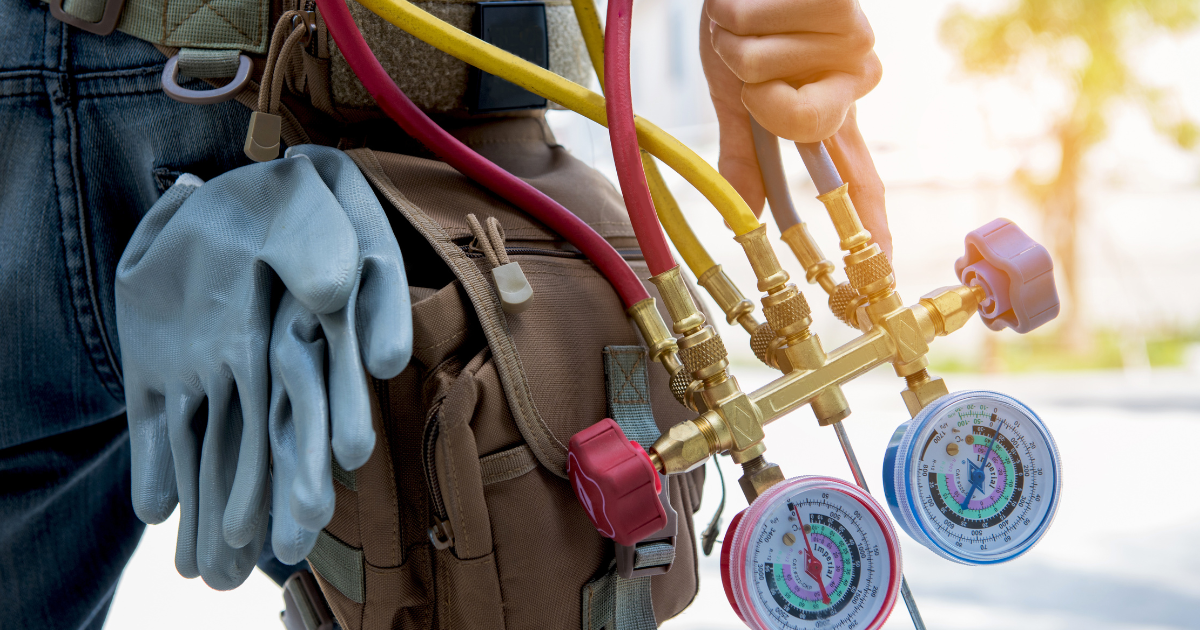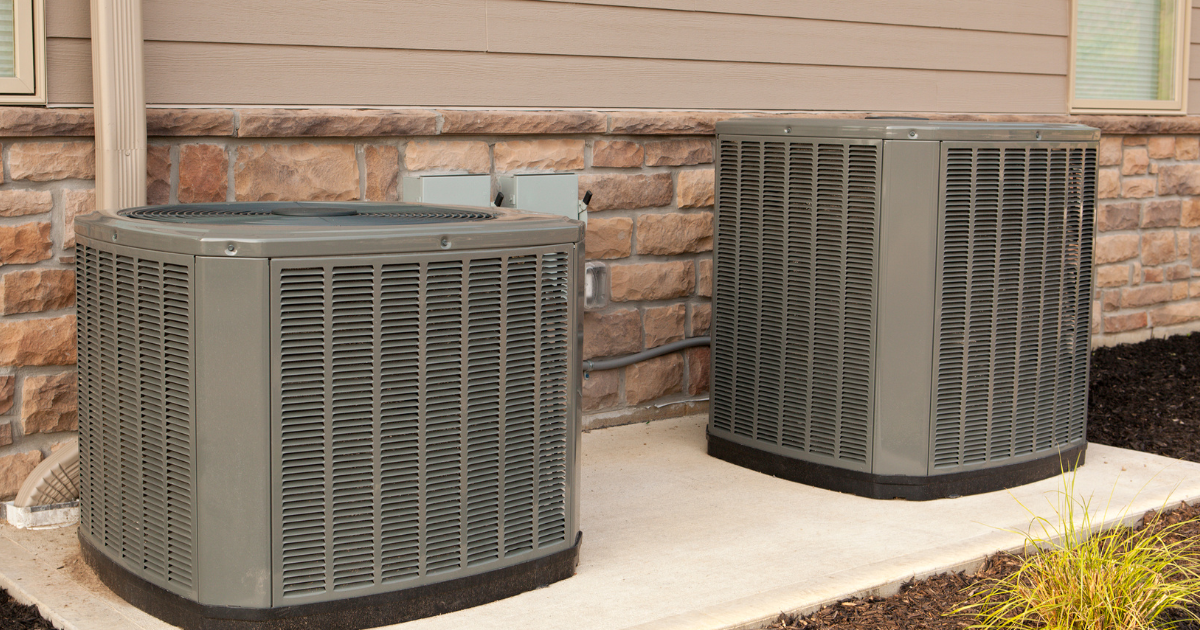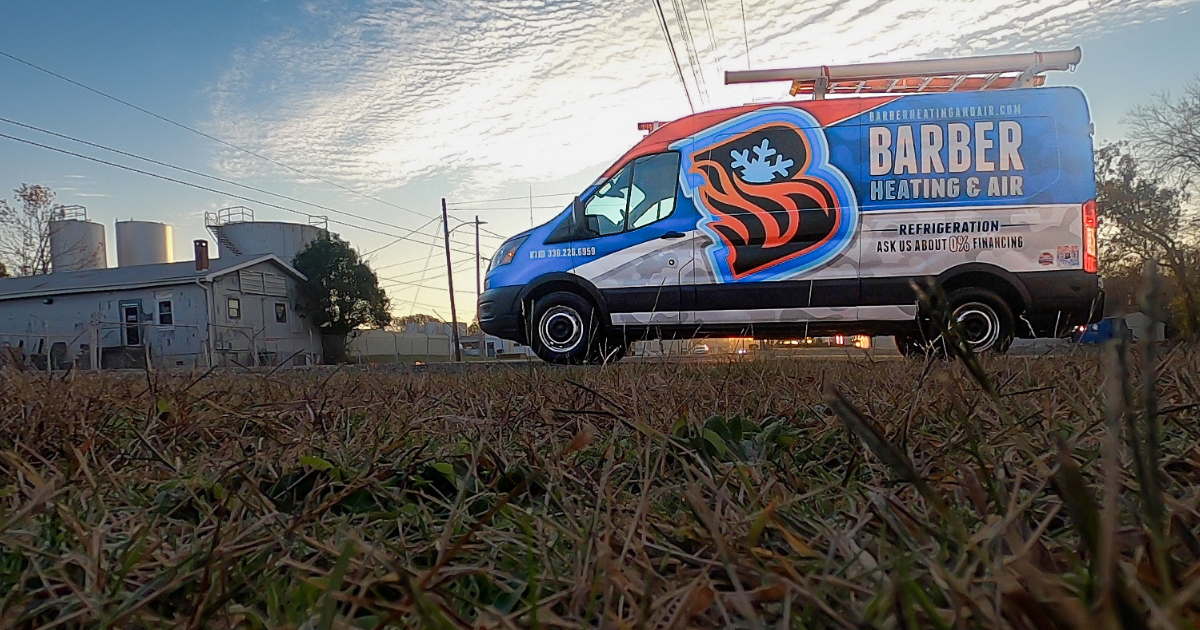Your Furnace and Your AC
One of the easiest ways to save energy is to have an efficient HVAC system. At Barber Heating & Air, we are dedicated to maintaining and installing the perfect system for your home. If you’re interested in how we can meet the energy needs for your Burlington, NC home, request a quote or call us at (336) 226-6959.
Your furnace and your air conditioning system are two central components of your HVAC system, connected and controlled for greater efficiency. During warmer weather, you’ll need to turn off your furnace and use your air conditioner instead. Your central air conditioning system is independent of your furnace. The outdoor unit isn’t connected to the furnace at all—but they both utilize the same distribution system (vents, fans, filters, and ducts) to push cool and warm air into your home. Still a little confused? Keep reading.
Your Home’s HVAC System
Your furnace and your air conditioning system are part of your home’s HVAC system. They both use air ducts throughout your home to transport cool or hot air, helping your home to maintain a comfortable temperature. You can think of your heating and cooling systems as the lungs of your home, while the ductwork is the airway of your home.
How Does Your Furnace Work?
A furnace works by heating up air and sending it through the ducts of your home using a fan. During cooler winter months, your furnace helps to ensure that you stay toasty and warm inside your house.
How Does Your AC Work?
If you have central air, your air conditioning system works in much the same way as your furnace. But instead of taking in air from the outside and heating it, your air conditioner cools the air down. The cool air is then distributed throughout your home via ducts.
Do You Need To Run Your Furnace and Your AC at the Same Time?
In general, you shouldn’t have both systems running at once. Not only does this defeat the purpose of heating or cooling your home, but it also means that your HVAC system will experience additional wear and tear. Once temperatures get warm enough that you no longer need to heat your home, you should switch over to air conditioning until the cooler months return.
During the summer, you should lower (or turn off) any humidifiers attached to your furnace, since one job of your AC unit is to dehumidify air. During the winter, you want the humidifier to leave some moisture in the air to help increase overall comfort and make your home feel warmer.
The Comfort Systems Rely on Each Other for Best Performance
Your air conditioner and your furnace are two important and interconnected parts of your HVAC system. Because both the heating and cooling systems of your home are encompassed by the HVAC system, it’s especially important that you keep your HVAC system well-maintained. Damage to one part often leads to damage within the other. For example:
- Ductwork: Damage to your ductwork leads to hot or cold air loss in your basement.
- Improper air conditioner installations: AC units that aren’t properly installed can bleed cool air into your furnace during the winter, making its job far more difficult.
- Furnace fans: If your furnace fan stops operating during the summer, all of the cold air being produced by your AC unit won’t go anywhere.
- Broken thermostat: This part must be set right to engage “hot” and “cool” options appropriately.
You can protect your furnace, AC, and HVAC system by conducting regular checkups and fixing any issues that may arise right away. A good rule of thumb is to have your furnace inspected about once a year before cool weather hits in late summer or early fall. This can help you to catch any problems and make sure that your furnace is in tip-top shape before winter arrives. Replace your furnace and air conditioner filters regularly.
Request Service
"*" indicates required fields


